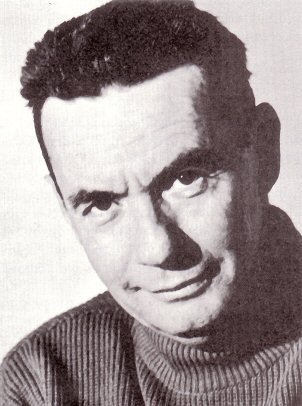The directory «Plots»
Šoljan Antun
(1932—1993)

Croatian poet, novelist, short story writer, essayist and feuilletonist, literary critic and translator, was one of the most representative and complete Croatian writers from the second half of the 20th century The poetry of Antun Šoljan takes a distinguished place among the opuses of generations of Croatian poets. The poet achieved this distinction by his usage of the colloquial idiom, the anecdotal quality of the content, as well as a contagious melancholic awareness, skilfully supplemented by self-irony, of the fact that he and his peers were losers, outsiders, in comparison to the official victorious posture and choreography of the socialist society of that time. This awareness was going to pervade the whole of his opus. Antun Šoljan’s main collections of poems are Izvan fokusa (“Outside the focus”, 1957), Gartlic za čas kratiti (“Small garden to kill time”, 1965), Gazela i druge pjesme (“Gazelle and other poems”, 1970) and Bacač kamena (“Stone thrower”, 1985). In his best novels and short stories, Šoljan developed an existentialistic allegoric type of storytelling, with a group-formed main hero who is characterized by a marginal social position and an outsider fate and who finds himself in constant contrast to the ideologically one-track based establishment. There are two collections of short stories Deset kratkih priča za moju generaciju (“Ten short stories for my generation”, 1966), Obiteljska večera i druge priče (“Family dinner and other stories”, 1975); there are also novels Izdajice (“Traitors”, 1961), Kratki izlet (“Short excursion”, 1965), Luka (“Harbour”, 1974), and Drugi ljudi na mjesecu (“Other people on the Moon”, 1978). In the brilliant drama opus, written for the theatre and the radio, Šoljan reached his peak in the plays Brdo (“Mountain”, 1964), whose plot is situated in a garrison in the Andes and which questions human freedom, and also in the play Galilejevo uzašašće (“Galileo’s ascesion”, 1965), where the famous scientist, though being sentenced to be a loser by the Inquisition, “takes off like an eagle and rises”. There are also Dobre vijesti, gospo (“Good news, madam”, 1968), a farce in which myth and false hope are more efficient than truth; in the play Dioklecijanova palača (“Diocletian’s palace” 1969), Šoljan applies analysis and irony to the illusion of authority that has lost all its meaning; finally, his last play, Bard (“The Bard”, 1985), is quite topical nowadays on account of the appeal for our inclusion into Europe that Šoljan sent by this play. Antun Šoljan is one of the key writers of our literary history, and after ten years that have passed since his death we can only state that time is on the side of his works.
Croatia, 2003, Antun Šoljan